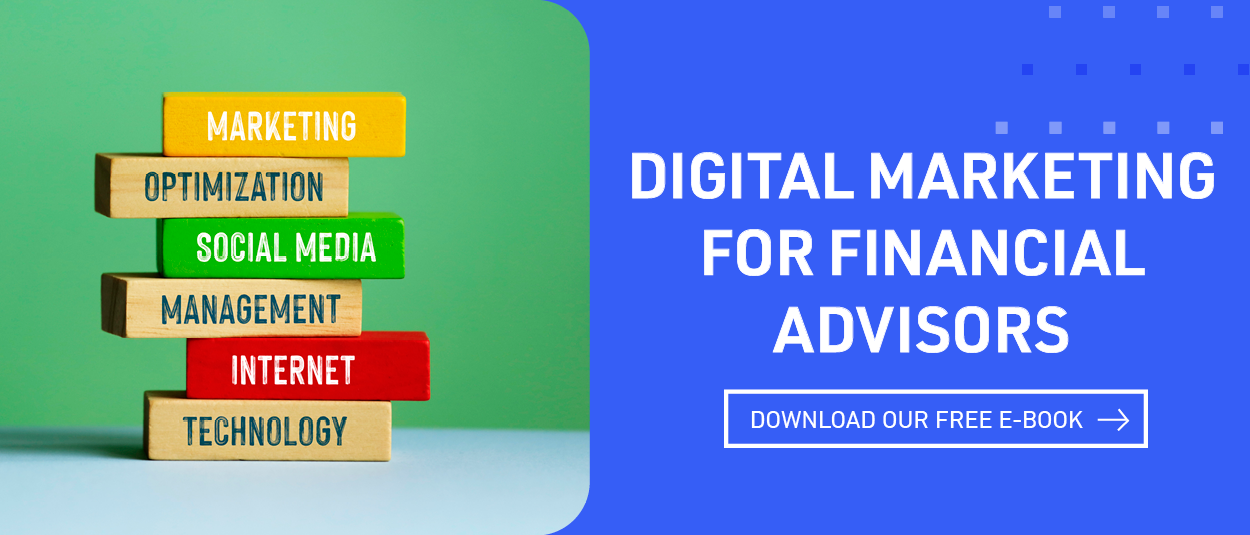

Do DIY Financial Advisor Websites Work in a Digital World?
It all depends on your definition of the word “work”. Financial advisor DIY websites work if their primary role is to deliver basic information to the people who visit the websites. However, they do not work if their primary role is to convert visitors into qualified leads.
If you developed your own website content, there is a good chance you did it to save money. Adding some basic content to a website template is easy. In fact, you can copy content from other financial advisor websites.
But, these websites do not convert visitors into leads and most of the time the financial advisors do not know why. Something is missing, but what is it?
The Power of the Internet
In the digital age, the power has shifted from financial advisors to consumers or in this case the millions of investors who rely on financial advisors to help them plan their futures and achieve their goals.
Not too long ago the only way to learn more about firms and their professionals was to talk to a representative of the firm. That is no longer true.
Today investors can learn a lot about firms and professionals by visiting their websites and Google searching their names. And, they can do this without divulging their names and contact information. They are anonymous until they initiate the contact.
The Internet makes this possible, which also makes financial advisor websites a vital part of their marketing strategies. They are a 24/7 marketing tool that makes a difference.
The Sales Funnel
The funnel starts when investors find financial advisors on the Internet. They learn more about the advisors by visiting their websites and Google searching their names. If they like what they see, they enter the sales funnel, when they submit their contact information.
This makes financial advisor websites a very important sales tool. If they do their job they produce a steady flow of high-quality leads. But, if they are not designed properly they represent a missed sales opportunity for the advisors who own or lease them.
First Impression
They say you only get one chance to make a great first impression. Nothing could be more true when investors are surfing the web in search of financial advisors. Surveys show they spend about 8 seconds on the home page above the fold. If they like what they see they will use the top navigation to find the information they are seeking.
If they don’t like what they see, they exit the site and they don’t return. Therefore, first impressions are critically important. That includes name, logo, and a compelling message that is designed to keep visitors on the financial advisor’s website.
The Right Information
Financial advisor websites must deliver the right information. That’s because numerous studies show investors will exit a website before they will search for information. They are just two clicks away from visiting another website.
This means the navigation has to be 100% intuitive. There should not be any need for interpretation or guessing where to go to find information.
Stock Photos
Financial advisors who are prone to developing their own websites generally use stock photos to make their sites more attractive. We have all seen the couple on the beach.
How do investors react to stock photos? Again, surveys show their reactions are negative. Think about it from this perspective. What is the advisor hiding? If the financial advisor has nothing to hide, the financial advisor would be using real photos on the website and not stock photos from Getty.
In general, smaller firms are prone to using stock photos. Bigger firms with more staff and more elaborate facilities tend to use real photos.
Credibility & Trust
Perhaps the most important benefit of a financial advisor website is its ability to convey credibility and trust.
There are several tactics that digital marketing agencies use to build credibility. For example, an advisor publishes bios on all of the key professionals who work at the firm. Then they build trust by describing each professional’s education, certifications, and years of experience. They may also provide a statement about each financial advisor’s compliance record to build additional trust.
Additional trust can be built by practicing full transparency for information that is important for investors to know before they interview financial advisors. For example, a relatively sensitive topic for many advisors is the publishing of their fee schedules. They do not want to risk any negative consequences that competitors could use against them.
On the other hand, it is difficult to build credibility and trust and withhold information at the same time.
The Free Offer
What is the worst-case scenario for financial advisor websites? Investors visit the sites and exit them without initiating contact with the financial advisors who own the sites.
Therefore, financial advisors are making a big mistake if they do not create something of value on the site that they offer for free in exchange for the investor's contact information.
This type of offer makes sense for investors who do not have an immediate for the services of financial advisors. Instead, they are seeking information about financial advisors or financial topics.
In this example, there could be a timing issue. The investors plan to interview financial advisors in a few months when they are closer to retirement. Meanwhile, they are going through their learning curve now, so they make better decisions later when they retire.
They are information-seekers and not advisor-seekers. They will reside in the financial advisors’ CRM until they are ready to conduct their interviews.
Website Versus Office
A lot of financial advisors will spend thousands of dollars per month leasing office space in a prestigious building and location. Then they spend tens of thousands of additional dollars on furnishings so they project the right image. All of this expense is based on the possibility prospects and clients may visit their offices.
On the other hand, these same financial advisors are reluctant to spend serious money on their websites and building brand awareness on the Internet - even though there is an almost 100% chance prospects will visit financial advisor websites before they agree to meet with them. On this basis, the right website is much more valuable than a well-appointed office. This is even more true for financial advisors who utilize virtual marketing to expand their clientele.
A website is a financial advisor’s most powerful sales tool. It should not be taken for granted just because every financial advisor has a website.

Jack Waymire, BA, MBA
Search Here
Categories
- AI (18)
- blogging (2)
- branding (1)
- content (12)
- custodians (1)
- Digital (535)
- email marketing (3)
- fcmo (3)
- fees (1)
- financial advisor marketing (66)
- Google (3)
- Ideas & Tips (125)
- Investor Experience (7)
- lead generation (7)
- linkedin (1)
- Marketing (605)
- newsletters (1)
- Online Transparency (2)
- podcasting (1)
- search engine optimization (4)
- seo (9)
- Social Media (2)
- video (3)
- Websites (172)
- YouTube channel (2)
Recent Posts
-
 October 22, 2025
October 22, 2025 -

-

Top 10 Business Challenges for Smaller Financial Advisor Firms
October 16, 2025 -

How Financial Advisors Use AI to Optimize Website Compliance
October 14, 2025 -

AI Blogging On Your Financial Advisor Website
October 10, 2025

